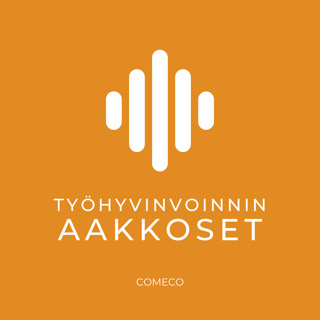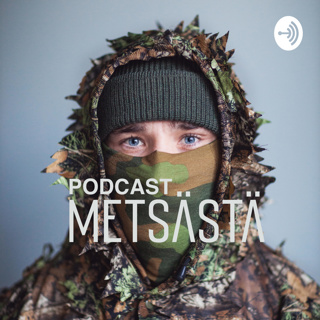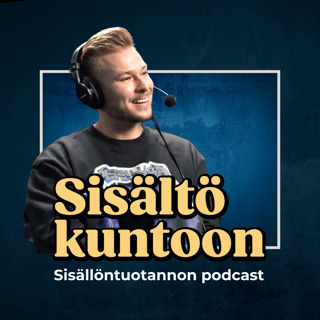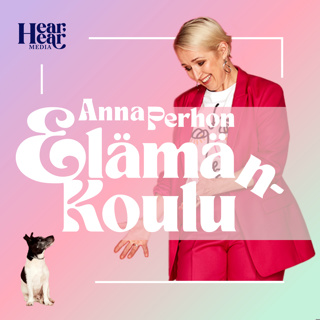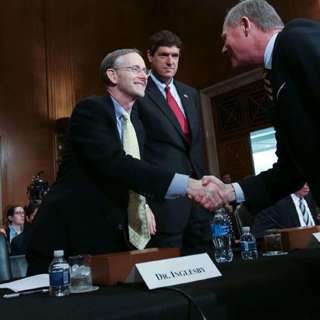
#27 - Dr Tom Inglesby on careers and policies that reduce global catastrophic biological risks
How about this for a movie idea: a main character has to prevent a new contagious strain of Ebola spreading around the world. She’s the best of the best. So good in fact, that her work on early detection systems contains the strain at its source. Ten minutes into the movie, we see the results of her work – nothing happens. Life goes on as usual. She continues to be amazingly competent, and nothing continues to go wrong. Fade to black. Roll credits. If your job is to prevent catastrophes, success is when nobody has to pay attention to you. But without regular disasters to remind authorities why they hired you in the first place, they can’t tell if you’re actually achieving anything. And when budgets come under pressure you may find that success condemns you to the chopping block. Dr Tom Inglesby, Director of the Center for Health Security at the Johns Hopkins Bloomberg School of Public Health, worries this may be about to happen to the scientists working on the ‘Global Health Security Agenda’. In 2014 Ebola showed the world why we have to detect and contain new diseases before they spread, and that when it comes to contagious diseases the nations of the world sink or swim together. Fifty countries decided to work together to make sure all their health systems were up to the challenge. Back then Congress provided 5 years’ funding to help some of the world’s poorest countries build the basic health security infrastructure necessary to control pathogens before they could reach the US. Links to learn more, job opportunities, and full transcript. But with Ebola fading from public memory and no recent tragedies to terrify us, Congress may not renew that funding and the project could fall apart. (Learn more about how you can help: http://www.nti.org/analysis/articles/protect-us-investments-global-health-security/ ) But there are positive signs as well - the center Inglesby leads recently received a $16 million grant from the Open Philanthropy Project to further their work preventing global catastrophes. It also runs the [Emerging Leaders in Biosecurity Fellowship](http://www.centerforhealthsecurity.org/our-work/emergingbioleaders/) to train the next generation of biosecurity experts for the US government. And Inglesby regularly testifies to Congress on the threats we all face and how to address them. In this in-depth interview we try to provide concrete guidance for listeners who want to to pursue a career in health security. Some of the topics we cover include: * Should more people in medicine work on security? * What are the top jobs for people who want to improve health security and how do they work towards getting them? * What people can do to protect funding for the Global Health Security Agenda. * Should we be more concerned about natural or human caused pandemics? Which is more neglected? * Should we be allocating more attention and resources to global catastrophic risk scenarios? * Why are senior figures reluctant to prioritize one project or area at the expense of another? * What does Tom think about the idea that in the medium term, human-caused pandemics will pose a far greater risk than natural pandemics, and so we should focus on specific counter-measures? * Are the main risks and solutions understood, and it’s just a matter of implementation? Or is the principal task to identify and understand them? * How is the current US government performing in these areas? * Which agencies are empowered to think about low probability high magnitude events? And more... Get this episode by subscribing: search for '80,000 Hours' in your podcasting app. The 80,000 Hours Podcast is produced by Keiran Harris.
18 Huhti 20182h 16min
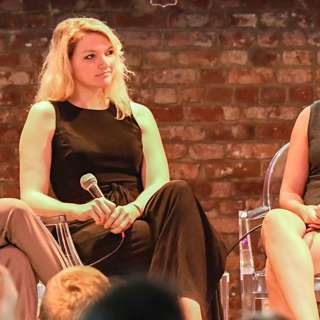
#26 - Marie Gibbons on how exactly clean meat is made & what's needed to get it in every supermarket
First, decide on the type of animal. Next, pick the cell type. Then take a small, painless biopsy, and put the cells in a solution that makes them feel like they’re still in the body. Once the cells are in this comfortable state, they'll proliferate. One cell becomes two, two becomes four, four becomes eight, and so on. Continue until you have enough cells to make a burger, a nugget, a sausage, or a piece of bacon, then concentrate them until they bind into solid meat. It's all surprisingly straightforward in principle according to Marie Gibbons, a research fellow with The Good Food Institute, who has been researching how to improve this process at Harvard Medical School. We might even see clean meat sold commercially within a year. The real technical challenge is developing large bioreactors and cheap solutions so that we can make huge volumes and drive down costs. This interview covers the science and technology involved at each stage of clean meat production, the challenges and opportunities that face cutting-edge researchers like Marie, and how you could become one of them. Full transcript, key points, and links to learn more. Marie’s research focuses on turkey cells. But as she explains, with clean meat the possibilities extend well beyond those of traditional meat. Chicken, cow, pig, but also panda - and even dinosaurs could be on the menus of the future. Today’s episode is hosted by Natalie Cargill, a barrister in London with a background in animal advocacy. Natalie and Marie also discuss: * Why Marie switched from being a vet to developing clean meat * For people who want to dedicate themselves to animal welfare, how does working in clean meat fare compared to other career options? How can people get jobs in the area? * How did this become an established field? * How important is the choice of animal species and cell type in this process? * What are the biggest problems with current production methods? * Is this kind of research best done in an academic setting, a commercial setting, or a balance between the two? * How easy will it be to get consumer acceptance? * How valuable would extra funding be for cellular agriculture? * Can we use genetic modification to speed up the process? * Is it reasonable to be sceptical of the possibility of clean meat becoming financially competitive with traditional meat any time in the near future? Get this episode by subscribing to our podcast on the world’s most pressing problems and how to solve them: search for '80,000 Hours' in your podcasting app. The 80,000 Hours Podcast is produced by Keiran Harris.
10 Huhti 20181h 44min
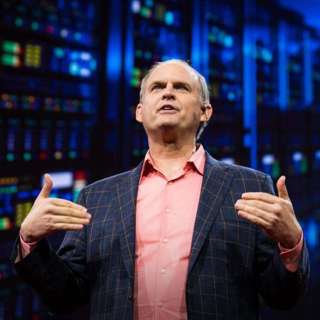
#25 - Robin Hanson on why we have to lie to ourselves about why we do what we do
On February 2, 1685, England’s King Charles II was struck by a sudden illness. Fortunately his physicians were the best of the best. To reassure the public they kept them abreast of the King’s treatment regimen. King Charles was made to swallow a toxic metal; had blistering agents applied to his scalp; had pigeon droppings attached to his feet; was prodded with a red-hot poker; given forty drops of ooze from “the skull of a man that was never buried”; and, finally, had crushed stones from the intestines of an East Indian goat forced down his throat. Sadly, despite these heroic efforts, he passed away the following week. Why did the doctors go this far? Prof, Robin Hanson, Associate Professor of Economics at George Mason University suspects that on top of any medical beliefs they also had a hidden motive: it needed to be clear, to the king and the public, that the physicians cared enormously about saving His Royal Majesty. Only by going ‘all out’ would they be protected against accusations of negligence should the King die. Full transcript, summary, and links to articles discussed in the show. If you believe Hanson, the same desire to be seen to care about our family and friends explains much of what’s perverse about our medical system today. And not just medicine - Robin thinks we’re mostly kidding ourselves when we say our charities exist to help others, our schools exist to educate students and our politics are about choosing wise policies. So important are hidden motives for navigating our social world that we have to deny them to ourselves, lest we accidentally reveal them to others. Robin is a polymath economist, who has come up with surprising and novel insight in a range of fields including psychology, politics and futurology. In this extensive episode we discuss his latest book with Kevin Simler, *The Elephant in the Brain: Hidden Motives in Everyday Life*, but also: * What was it like being part of a competitor group to the ‘World Wide Web’, and being beaten to the post? * If people aren’t going to school to learn, what’s education all about? * What split brain patients tell us about our ability to justify anything * The hidden motivations that shape religions * Why we choose the friends we do * Why is our attitude to medicine mysterious? * What would it look like if people were focused on doing as much good as possible? * Are we better off donating now, when we’re older, or even wait until well after our deaths? * How much of the behavior of ‘effective altruists’ can we assume is genuinely motivated by wanting to do as much good as possible? * What does Robin mean when he refers to effective altruism as a youth movement? Is that a good or bad thing? * And much more...
28 Maalis 20182h 39min
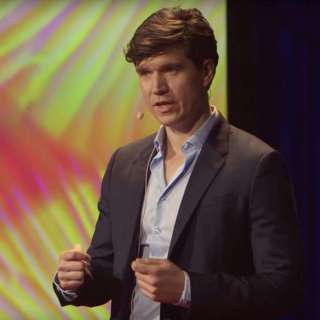
#24 - Stefan Schubert on why it’s a bad idea to break the rules, even if it’s for a good cause
How honest should we be? How helpful? How friendly? If our society claims to value honesty, for instance, but in reality accepts an awful lot of lying – should we go along with those lax standards? Or, should we attempt to set a new norm for ourselves? Dr Stefan Schubert, a researcher at the Social Behaviour and Ethics Lab at Oxford University, has been modelling this in the context of the effective altruism community. He thinks people trying to improve the world should hold themselves to very high standards of integrity, because their minor sins can impose major costs on the thousands of others who share their goals. Summary, related links and full transcript. In addition, when a norm is uniquely important to our situation, we should be willing to question society and come up with something different and hopefully better. But in other cases, we can be better off sticking with whatever our culture expects, both to save time, avoid making mistakes, and ensure others can predict our behaviour. In this interview Stefan offers a range of views on the projects and culture that make up ‘effective altruism’ - including where it’s going right and where it’s going wrong. Stefan did his PhD in formal epistemology, before moving on to a postdoc in political rationality at the London School of Economics, while working on advocacy projects to improve truthfulness among politicians. At the time the interview was recorded Stefan was a researcher at the Centre for Effective Altruism in Oxford. We discuss: * Should we trust our own judgement more than others’? * How hard is it to improve political discourse? * What should we make of well-respected academics writing articles that seem to be completely misinformed? * How is effective altruism (EA) changing? What might it be doing wrong? * How has Stefan’s view of EA changed? * Should EA get more involved in politics, or steer clear of it? Would it be a bad idea for a talented graduate to get involved in party politics? * How much should we cooperate with those with whom we have disagreements? * What good reasons are there to be inconsiderate? * Should effective altruism potentially focused on a more narrow range of problems? *The 80,000 Hours podcast is produced by Keiran Harris.* **If you subscribe to our podcast, you can listen at leisure on your phone, speed up the conversation if you like, and get notified about future episodes. You can do so by searching ‘80,000 Hours’ wherever you get your podcasts.**
20 Maalis 201855min
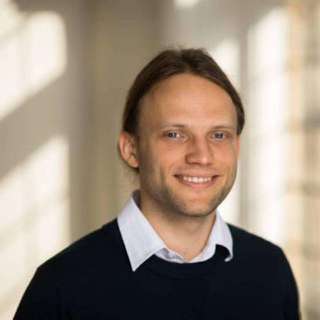
#23 - How to actually become an AI alignment researcher, according to Dr Jan Leike
Want to help steer the 21st century’s most transformative technology? First complete an undergrad degree in computer science and mathematics. Prioritize harder courses over easier ones. Publish at least one paper before you apply for a PhD. Find a supervisor who’ll have a lot of time for you. Go to the top conferences and meet your future colleagues. And finally, get yourself hired. That’s Dr Jan Leike’s advice on how to join him as a Research Scientist at DeepMind, the world’s leading AI team. Jan is also a Research Associate at the Future of Humanity Institute at the University of Oxford, and his research aims to make machine learning robustly beneficial. His current focus is getting AI systems to learn good ‘objective functions’ in cases where we can’t easily specify the outcome we actually want. Full transcript, summary and links to learn more. How might you know you’re a good fit for research? Jan says to check whether you get obsessed with puzzles and problems, and find yourself mulling over questions that nobody knows the answer to. To do research in a team you also have to be good at clearly and concisely explaining your new ideas to other people. We also discuss: * Where Jan's views differ from those expressed by Dario Amodei in episode 3 * Why is AGI safety one of the world’s most pressing problems? * Common misconceptions about AI * What are some of the specific things DeepMind is researching? * The ways in which today’s AI systems can fail * What are the best techniques available today for teaching an AI the right objective function? * What’s it like to have some of the world’s greatest minds as coworkers? * Who should do empirical research and who should do theoretical research * What’s the DeepMind application process like? * The importance of researchers being comfortable with the unknown. *The 80,000 Hours Podcast is produced by Keiran Harris.*
16 Maalis 201845min
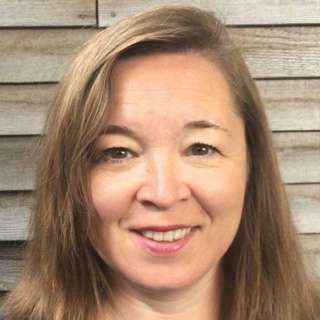
#22 - Leah Utyasheva on the non-profit that figured out how to massively cut suicide rates
How people kill themselves varies enormously depending on which means are most easily available. In the United States, suicide by firearm stands out. In Hong Kong, where most people live in high rise buildings, jumping from a height is more common. And in some countries in Asia and Africa with many poor agricultural communities, the leading means is drinking pesticide. There’s a good chance you’ve never heard of this issue before. And yet, of the 800,000 people who kill themselves globally each year 20% die from pesticide self-poisoning. Full transcript, summary and links to articles discussed in today's show. Research suggests most people who try to kill themselves with pesticides reflect on the decision for less than 30 minutes, and that less than 10% of those who don't die the first time around will try again. Unfortunately, the fatality rate from pesticide ingestion is 40% to 70%. Having such dangerous chemicals near people's homes is therefore an enormous public health issue not only for the direct victims, but also the partners and children they leave behind. Fortunately researchers like Dr Leah Utyasheva have figured out a very cheap way to massively reduce pesticide suicide rates. In this episode, Leah and I discuss: * How do you prevent pesticide suicide and what’s the evidence it works? * How do you know that most people attempting suicide don’t want to die? * What types of events are causing people to have the crises that lead to attempted suicide? * How much money does it cost to save a life in this way? * How do you estimate the probability of getting law reform passed in a particular country? * Have you generally found politicians to be sympathetic to the idea of banning these pesticides? What are their greatest reservations? * The comparison of getting policy change rather than helping person-by-person * The importance of working with locals in places like India and Nepal, rather than coming in exclusively as outsiders * What are the benefits of starting your own non-profit versus joining an existing org and persuading them of the merits of the cause? * Would Leah in general recommend starting a new charity? Is it more exciting than it is scary? * Is it important to have an academic leading this kind of work? * How did The Centre for Pesticide Suicide Prevention get seed funding? * How does the value of saving a life from suicide compare to savings someone from malaria * Leah’s political campaigning for the rights of vulnerable groups in Eastern Europe * What are the biggest downsides of human rights work?
7 Maalis 20181h 8min
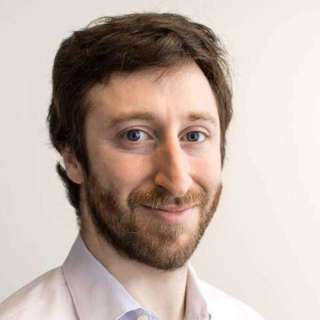
#21 - Holden Karnofsky on times philanthropy transformed the world & Open Phil’s plan to do the same
The Green Revolution averted mass famine during the 20th century. The contraceptive pill gave women unprecedented freedom in planning their own lives. Both are widely recognised as scientific breakthroughs that transformed the world. But few know that those breakthroughs only happened when they did because of a philanthropist willing to take a risky bet on a new idea. Today’s guest, Holden Karnofsky, has been looking for philanthropy’s biggest success stories because he’s Executive Director of the Open Philanthropy Project, which gives away over $100 million per year - and he’s hungry for big wins. Full transcript, related links, job opportunities and summary of the interview. In the 1940s, poverty reduction overseas was not a big priority for many. But the Rockefeller Foundation decided to fund agricultural scientists to breed much better crops for the developing world - thereby massively increasing their food production. In the 1950s, society was a long way from demanding effective birth control. Activist Margaret Sanger had the idea for the pill, and endocrinologist Gregory Pincus the research team – but they couldn’t proceed without a $40,000 research check from biologist and women’s rights activist Katherine McCormick. In both cases, it was philanthropists rather than governments that led the way. The reason, according to Holden, is that while governments have enormous resources, they’re constrained by only being able to fund reasonably sure bets. Philanthropists can transform the world by filling the gaps government leaves - but to seize that opportunity they have to hire outstanding researchers, think long-term and be willing to fail most of the time. Holden knows more about this type of giving than almost anyone. As founder of GiveWell and then the Open Philanthropy Project, he has been working feverishly since 2007 to find outstanding giving opportunities. This practical experience has made him one of the most influential figures in the development of the school of thought that has come to be known as effective altruism. We’ve recorded this episode now because [the Open Philanthropy Project is hiring](https://www.openphilanthropy.org/get-involved/jobs) for a large number of positions, which we think would allow the right person to have a very large positive influence on the world. They’re looking for a large number of entry lever researchers to train up, 3 specialist researchers into potential risks from advanced artificial intelligence, as well as a Director of Operations, Operations Associate and General Counsel. But the conversation goes well beyond specifics about these jobs. We also discuss: * How did they pick the problems they focus on, and how will they change over time? * What would Holden do differently if he were starting Open Phil again today? * What can we learn from the history of philanthropy? * What makes a good Program Officer. * The importance of not letting hype get ahead of the science in an emerging field. * The importance of honest feedback for philanthropists, and the difficulty getting it. * How do they decide what’s above the bar to fund, and when it’s better to hold onto the money? * How philanthropic funding can most influence politics. * What Holden would say to a new billionaire who wanted to give away most of their wealth. * Why Open Phil is building a research field around the safe development of artificial intelligence * Why they invested in OpenAI. * Academia’s faulty approach to answering practical questions. * What potential utopias do people most want, according to opinion polls? Keiran Harris helped produce today’s episode.
27 Helmi 20182h 35min
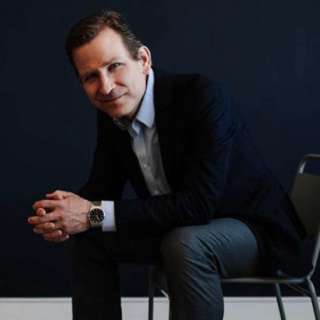
#20 - Bruce Friedrich on inventing outstanding meat substitutes to end speciesism & factory farming
Before the US Civil War, it was easier for the North to morally oppose slavery. Why? Because unlike the South they weren’t profiting much from its existence. The fight for abolition was partly won because many no longer saw themselves as having a selfish stake in its continuation. Bruce Friedrich, executive director of The Good Food Institute (GFI), thinks the same may be true in the fight against speciesism. 98% of people currently eat meat. But if eating meat stops being part of most people’s daily lives -- it should be a lot easier to convince them that farming practices are just as cruel as they look, and that the suffering of these animals really matters. Full transcript, related links, job opportunities and summary of the interview. That’s why GFI is “working with scientists, investors, and entrepreneurs” to create plant-based meat, dairy and eggs as well as clean meat alternatives to animal products. In 2016, Animal Charity Evaluators named GFI one of its recommended charities. In this interview I’m joined by my colleague Natalie Cargill, and we ask Bruce about: * What’s the best meat replacement product out there right now? * How effective is meat substitute research for people who want to reduce animal suffering as much as possible? * When will we get our hands on clean meat? And why does Bruce call it clean meat, rather than in vitro meat or cultured meat? * What are the challenges of producing something structurally identical to meat? * Can clean meat be healthier than conventional meat? * Do plant-based alternatives have a better shot at success than clean meat? * Is there a concern that, even if the product is perfect, people still won’t eat it? Why might that happen? * What’s it like being a vegan in a family made up largely of hunters and meat-eaters? * What kind of pushback should be expected from the meat industry? Keiran Harris helped produce today’s episode.
19 Helmi 20181h 18min














